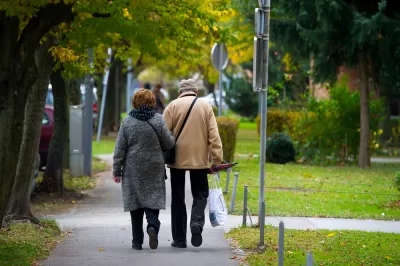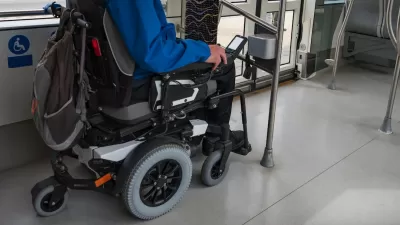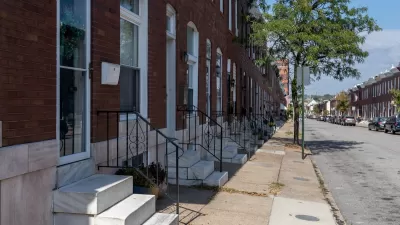Proponents of 'dementia design' call for inclusive design that centers the experience of people living with dementia and other disabilities that impact how they experience the urban environment.

"The design of the built environment can have a profound impact on how a person with dementia perceives, experiences and engages with the places and spaces in which they live," writes Lesley Palmer, Chief Architect at the University of Stirling's Dementia Services Development Centre.
But "Research has shown that rather than drawing upon the experiences of older people, their families and care professions, architects designing for later life are more likely to draw upon presumed needs and experiences of the older person as imagined by themselves."
To more appropriately design for people living with dementia, "Dementia design is a non-medical approach to help reduce some of the symptoms associated with dementia, such as agitation, aggression, confusion, incontinence and visual, spatial and navigational difficulties."
This approach, which was first developed in the 1980s in Australia, incorporates some key concepts: "it should compensate for disability, maximise independence and enhance self-esteem and confidence. It should also demonstrate care for staff needs, be orientating and understandable, reinforce personal identity, welcome relatives and the local community, and allow control of stimuli – for example, reducing unwanted noises associated with alarm systems."
Early advocates for dementia design, writes Palmer, called for viewing dementia as a disability rather than a disease with the goal of designing spaces that help people maintain everyday functions. "I believe it would also be helpful to recognise dementia as a public health issue and use design to address some of the challenges this brings," Palmer continues. "This would enable architects and planners to integrate dementia-design principles in a similar fashion to the way in which the Disability Discrimination Act supported people with physical disabilities."
FULL STORY: What is Dementia Design?

Alabama: Trump Terminates Settlements for Black Communities Harmed By Raw Sewage
Trump deemed the landmark civil rights agreement “illegal DEI and environmental justice policy.”

Study: Maui’s Plan to Convert Vacation Rentals to Long-Term Housing Could Cause Nearly $1 Billion Economic Loss
The plan would reduce visitor accommodation by 25% resulting in 1,900 jobs lost.

Planetizen Federal Action Tracker
A weekly monitor of how Trump’s orders and actions are impacting planners and planning in America.

Wind Energy on the Rise Despite Federal Policy Reversal
The Trump administration is revoking federal support for renewable energy, but demand for new projects continues unabated.

Passengers Flock to Caltrain After Electrification
The new electric trains are running faster and more reliably, leading to strong ridership growth on the Bay Area rail system.

Texas Churches Rally Behind ‘Yes in God’s Back Yard’ Legislation
Religious leaders want the state to reduce zoning regulations to streamline leasing church-owned land to housing developers.
Urban Design for Planners 1: Software Tools
This six-course series explores essential urban design concepts using open source software and equips planners with the tools they need to participate fully in the urban design process.
Planning for Universal Design
Learn the tools for implementing Universal Design in planning regulations.
Caltrans
Smith Gee Studio
Institute for Housing and Urban Development Studies (IHS)
City of Grandview
Harvard GSD Executive Education
Toledo-Lucas County Plan Commissions
Salt Lake City
NYU Wagner Graduate School of Public Service





























